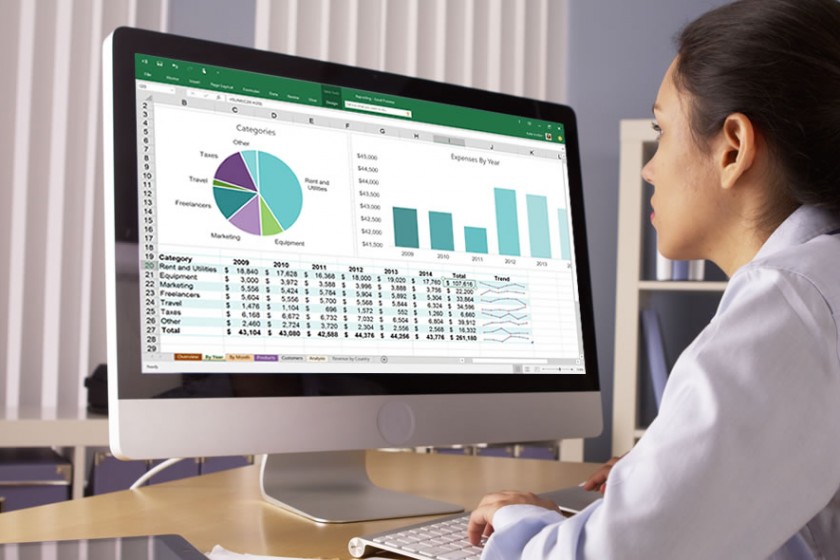
Looking back at my undergraduate career at Ithaca College, one of the most valuable skills I gained was proficiency in Microsoft Excel. I was required to take a course called Business Analytics & Technology, where I spent a whole semester learning the functionality of Excel and some more advanced data analysis. I then spent three semesters as a TA for the course because I loved it so much. Since graduating, I have used Excel on the job daily, and I would be way less productive had I not mastered it in undergrad. And I’m not the only one who thinks Excel skills are important.
In March 2015, Capital One teamed up with an analytics software company called Burning Glass Technologies to study the importance of digital skills (which they defined as spreadsheets and word processing) in the job market. What did they find? Spreadsheet and word processing proficiencies have become a baseline requirement for 78% of middle-skill jobs in the US. Additionally, wages for these jobs are on average 18% higher than wages for jobs that do not require these skills.
So, as you are preparing for your first job search, or even looking for an internship, developing your Excel skills might not be a bad idea. Here are some suggestions on how to get started:
- Download Microsoft Excel. UConn offers free downloads of the latest version of Microsoft Office (PC and Mac) for students. Currently, the latest version is Office 2016. To take advantage of this free download, visit the UConn Software Catalog.
- Learn the toolbar. Everything you can do in Excel revolves around the functionality of the toolbar (the ribbon of endless buttons at the top of the screen). Only once you master the toolbar will you be able to utilize Excel to its fullest. My recommended resource to learn the toolbar is Pearson’s Exploring Microsoft Excel 2016 Comprehensive. This textbook goes through each section of the toolbar, explains what everything means, and includes hands-on exercises to help you practice and learn. This textbook is available on lots of websites for varying prices, but is much cheaper than paying for any Excel course!
- Learn formulas and functions. In Excel, formulas are expressions you can type into a cell that will calculate the value of that cell (so you don’t have to do it manually), and functions are predefined formulas that are readily available to all Excel users (to make your life easier). Microsoft has a few Excel training modules in the training section on their website, but they don’t cover very many functions. To learn about more, visit this full list that includes function name, required information, and purpose.
- Consider getting certified. Microsoft offers certifications in each of its products. Once you feel you have developed your Excel proficiency, consider taking the Microsoft Office Specialist certification exam in Excel. Don’t forget to add it to your résumé when you pass!
